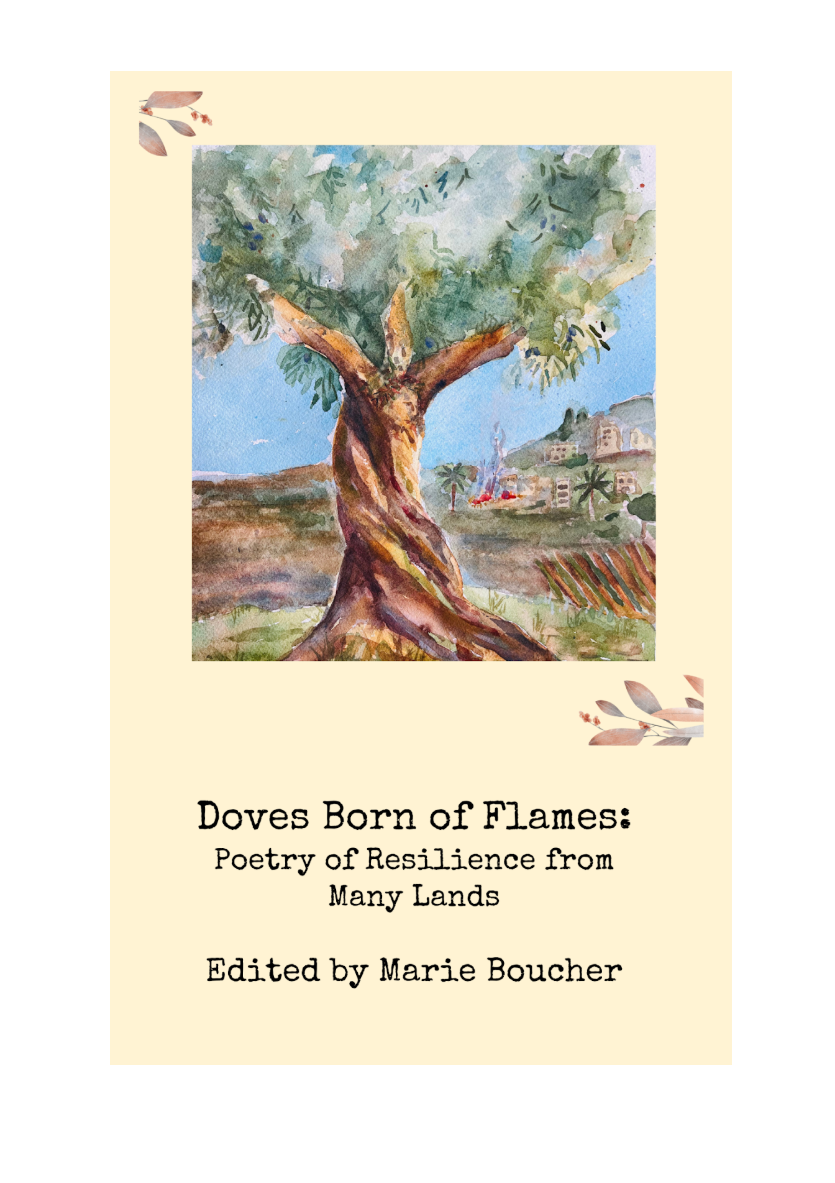Students Prepare for Careers in Development with UNICEF Internships
| by Jason Warburg
Eighteen students have completed paid internships with UNICEF over the past two years through a Memorandum of Understanding that kicked off in 2019.

Poetry and policymaking may not seem an intuitive pairing.
But a new poetry anthology curated by Middlebury Institute Professor Marie Butcher and students integrates the two with reflections on how to advance peace.
“Our specific aim of this anthology is to make positive change and promote further peace in the world across cultural and linguistic differences,” said Professor Marie Butcher (a.k.a. Marie Boucher), program head for the English for Academic and Professional Purposes program.
The anthology manuscript, Peace, Poetry & Policy: A Multilingual Anthology of Poetry Dedicated to Peace, is newly finished and under consideration at Lever Press. It features 127 poems in 17 languages, from French to Dzongkha, or Bhutanese.
Professor Butcher collaborated with Middlebury Institute students from different graduate programs. One was content editor Daniel Lyons, who is pursuing a dual degree in international policy and development and public administration. Binyuan Liu, who just graduated from the translation and localization management program, served as the technology lead. The students’ work was supported with a grant from the Davis Collaborative in Conflict Transformation.
In fall 2023, the team used social media and Professor Butcher’s connections to the poetry community to put out a call for poems. By February, the team was juggling 155 submissions.
The anthology is organized into several themes: conflict transformation, peace, social change, restorative justice, healing, and policy. As poets responded to the project, the team realized a new theme had to be added: “witnessing.”
“The heaviest poems are actually at the beginning, ‘the witnessing,’” Butcher said. “Before we get to transformation we need to honor the ones speaking to and/or living the experience of conflict and how tender this time is.”
Conflicts represented in the anthology span from historical conflicts like World War II to today’s headline-dominating battles in Ukraine and Gaza. Other poets confronted the conflicts around issues like the treatment of women in Latin America or prisoners in detention camps in the United States.
“The range of how people responded to the prompts was very broad. Some of these are current experiences and some are reflections back,” Butcher said. “I really appreciated how we could still find the arc from the beginning to end in a really cohesive way.”
Identifying a “policy poem” provided a unique, but important challenge for the team. A precise call to action and dissolution of the abstract ideas of government was important to the idea of policy poetry, said Butcher.
It’s a real reminder that there are bigger issues in this world. Poetry makes us start to or continue to think about these important issues.
“The policy section was the section where we had to really look more deeply,” Butcher said. “This is where the poet’s voice is calling out for a specific kind of change.”
Binyuan Liu built the anthology’s website to manage the flow of poems, using skills she acquired just the semester before. The team reviewed every submission, researching its connections of poetry and policy.
“Our team is multilingual and we were surprised to see so many submissions from around the world,” Liu said.
She submitted a poem of her own written in Chinese and English that focuses on honoring and learning from the past.
“I think Chinese poetry is really special because it is really plain. I wanted to emphasize that,” said Liu.
Liu reflected on how working on the anthology helped her keep her perspective as she finished her grad school career and started job seeking.
“It’s a real reminder that there are bigger issues in this world,” Liu said. “Poetry makes us start to or continue to think about these important issues.”
Butcher envisions the anthology being enjoyed by poetry lovers and used as a teaching tool in classrooms or healing circles. Long-term she hopes to create a companion audio version that would feature native speakers or the original authors bringing the diverse languages of their poetry to life.
“Peace, Poetry & Policy tells the story of our global experience and how we are still having conflicts and still needing to engage and see each other and make peace,” Butcher said. “The anthology describes all of the things we know to be true, and why we are still repeating these actions. We intend for the anthology to invite constructive conversations about conflict transformation and increase empathy for all those experiencing conflict in the world.”
Master of Arts in International Policy and Development
Davis Collaborative in Conflict Transformation
For more information, email the project.
| by Jason Warburg
Eighteen students have completed paid internships with UNICEF over the past two years through a Memorandum of Understanding that kicked off in 2019.
| by Caitlin Fillmore
Many returned Peace Corps volunteers find both community and a career through the Middlebury Institute—including many current students, faculty, and staff.
| by Jason Warburg
International Trade graduate Alexandra Calloway-Nation was awarded a fully-paid multi-year economic development fellowship with the Wind River Development Fund.